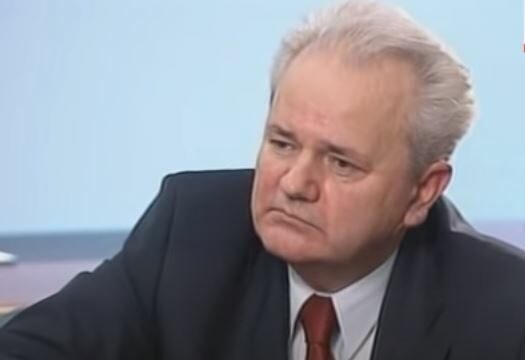Original article (in Montenegrin) was published on 18/3/2024; Author: Darvin Murić
Slobodan Milosevic, the former President of the Federal Republic of Yugoslavia, did not live to see the verdict of the crimes against humanity and genocide charges against him, as he passed away while awaiting the outcome of the trial.
On the anniversary of his death, various speculations often emerge in the media and on social media platforms regarding the circumstances of his passing, attempting to diminish his actions during the two wars.
This year’s anniversary of Milosevic’s death is no exception. In an article, Portal 083, marked the occasion with the headline:
“18 Years Ago, Slobodan Milosević Died Under Suspicious Circumstances!”
Numerous posts containing similar messages can also be found on social media:
“On this day, Slobodan Milosevic was killed in the Hague prison”
Contrary to the headline, the Portal 083 article does not mention “suspicious circumstances” surrounding Milosevic’s alleged death.
“Milosevic died of a heart attack, and at the family’s request, when the request to be buried in Belgrade with state honors was rejected, he was buried in the courtyard of the family house in Pozarevac… Milosevic had been suffering from heart problems for years, from hypertrophy of the left atrium, resulting in frequent spikes in blood pressure. Since the trial began before the Hague Tribunal on February 12, 2002, the proceedings were interrupted more than 15 times, mainly due to Milosevic’s blood pressure. In the months before his death, Milosevic frequently complained to the judges of the Hague Tribunal about headaches and pressure in his ears and eyes,” the Portal 083 article reads.
Milosevic passed away in the Hague prison on March 6, 2006. Immediately following his death, his lawyer, Zdravko Tomanovic expressed concerns over potential poisoning—a fear Milošević himself had communicated to the Hague Tribunal. Additionally, Borislav Milosevic, the brother of the former President of the FRY, accused the Tribunal of effectively causing Milošević’s death by denying him permission to seek treatment in Moscow while in detention. However, The Guardian reported that Milošević received regular medical visits, and court spokespersons affirmed that he died of natural causes.
In 2006, The Guardian reported, “Milošević was depressed and had a history of high blood pressure and chronic heart disease.”
To dispel the doubts raised at that time, the Hague court ordered an autopsy of Milosevic’s body, which revealed that he died of natural causes. Two pathologists from Belgrade were also present at the autopsy.
“According to the pathologists, the cause of Slobodan Milosevic’s death was a myocardial infarction. In addition, the pathologists identified two heart conditions from which Slobodan Milosevic suffered, which they say explain the myocardial infarction,” the autopsy report states.
Additionally, the Hague Tribunal mandated a toxicology report, finding no evidence of poisoning. Announced in 2006, “Toxicological testing of blood and tissue samples from Milošević’s body showed no indications of poisoning.” It was noted that while certain prescribed medications were found, none were in concentrations considered toxic.
These findings conclusively indicate that Milošević died of natural causes, specifically from a heart attack, without any suspicious circumstances or evidence of foul play. Therefore, the posts circulated by Portal 083 and on Facebook are deemed as fake news and conspiracy theories.
Content is labeled “Fake News” when it originates from a media outlet and contains claims or information that are factually incorrect, created, and disseminated with the intent to mislead the public.
A “Conspiracy Theory” rating applies to reports offering untrue or unverifiable explanations for events or individuals, suggesting involvement in a hidden agenda without credible evidence. Such content typically presents unverified claims as facts, implying causation without substantiation.



